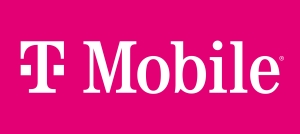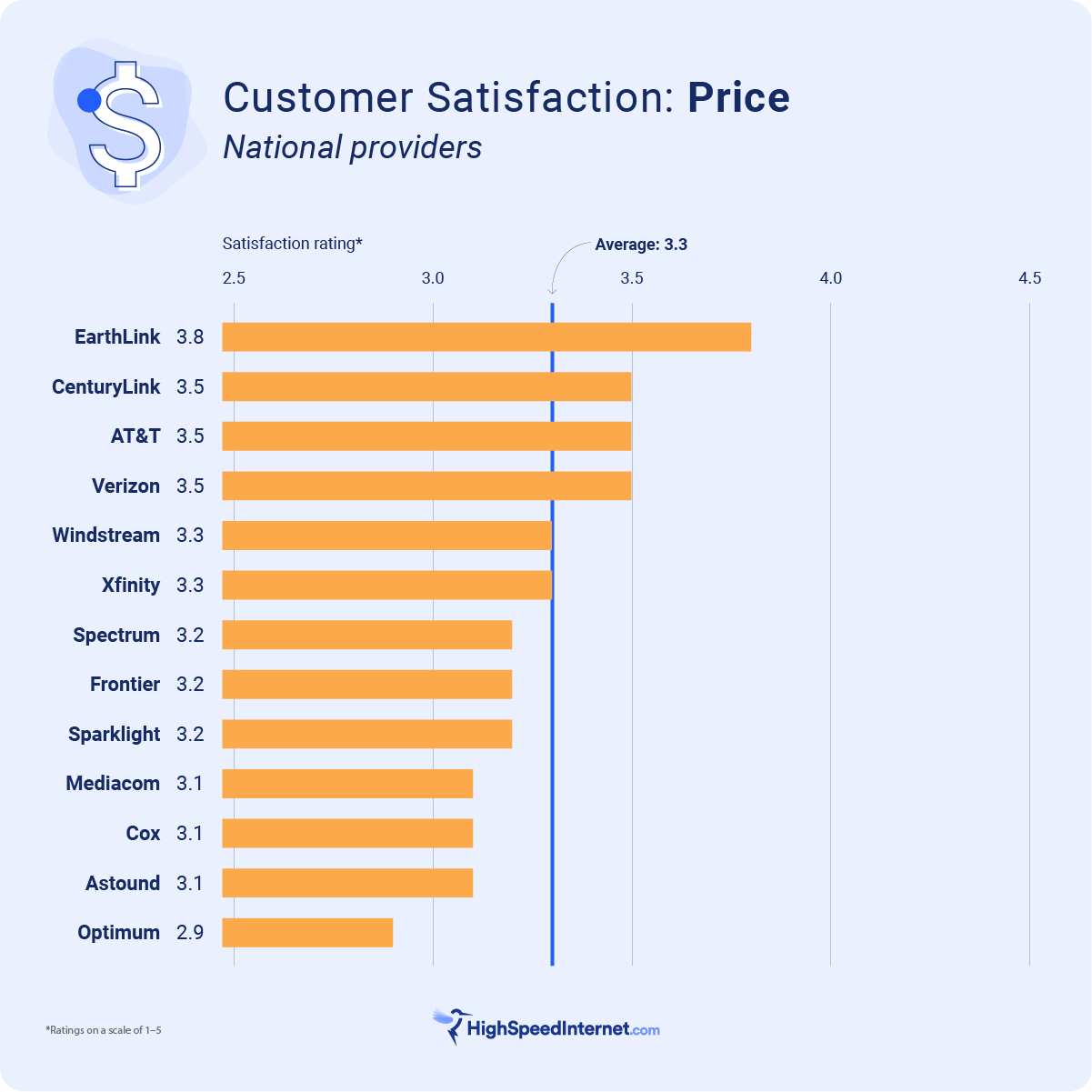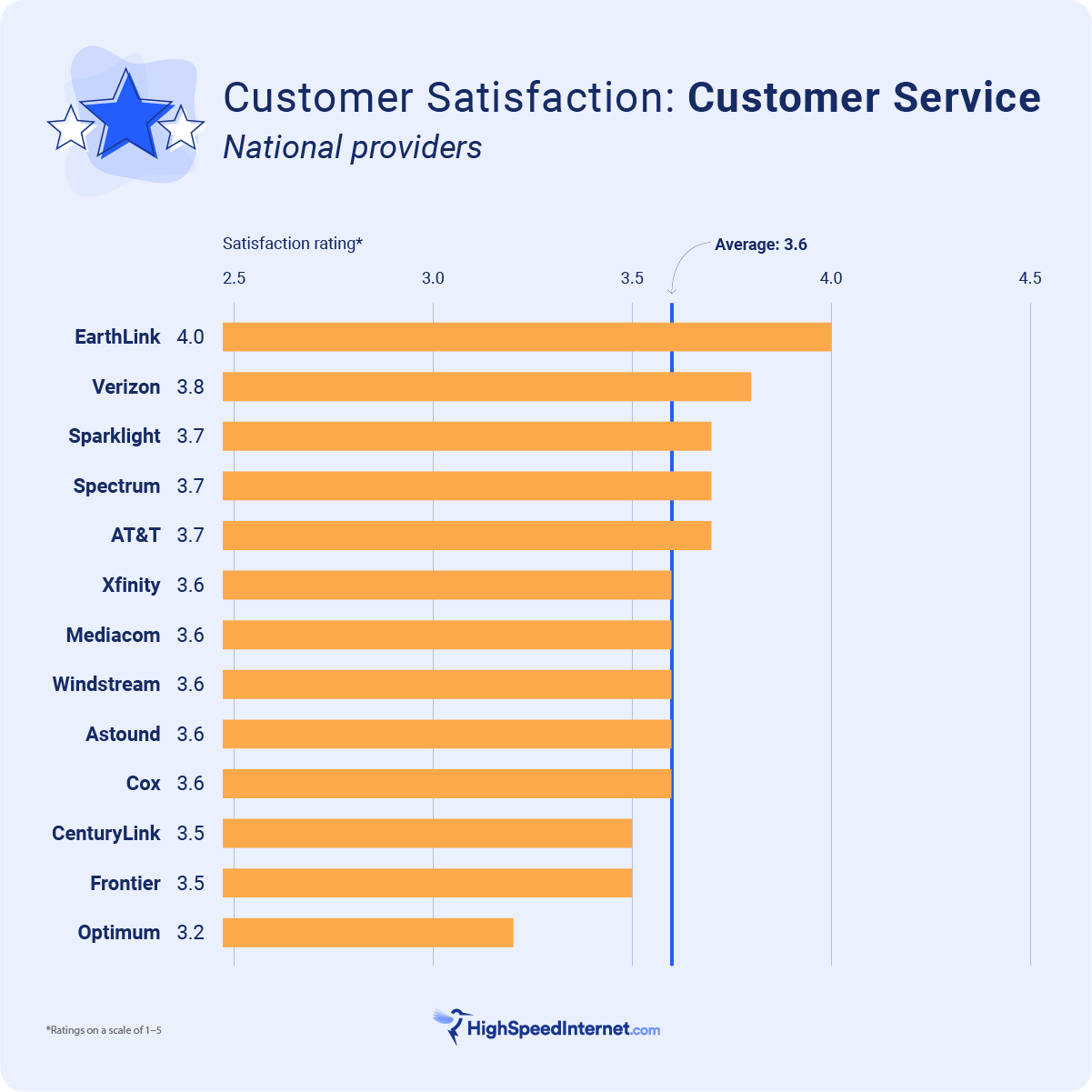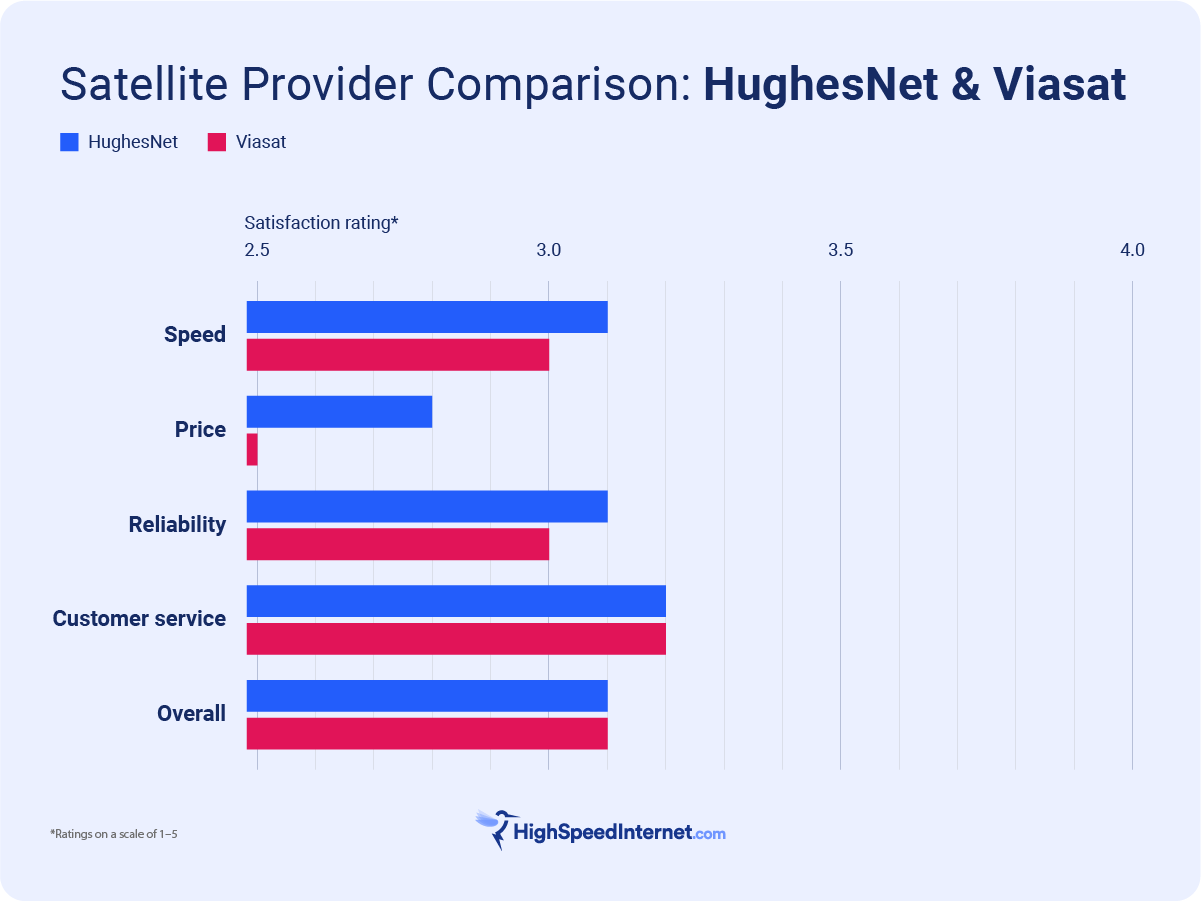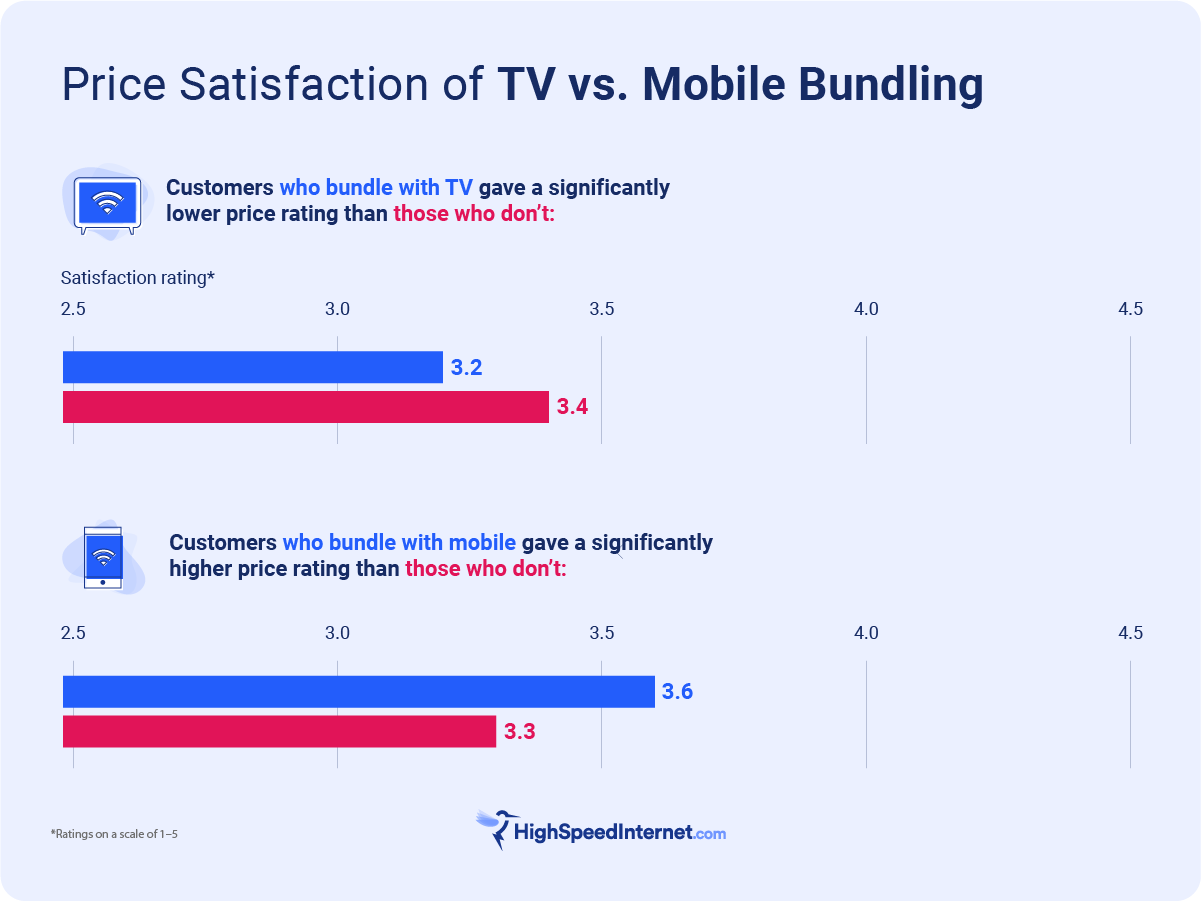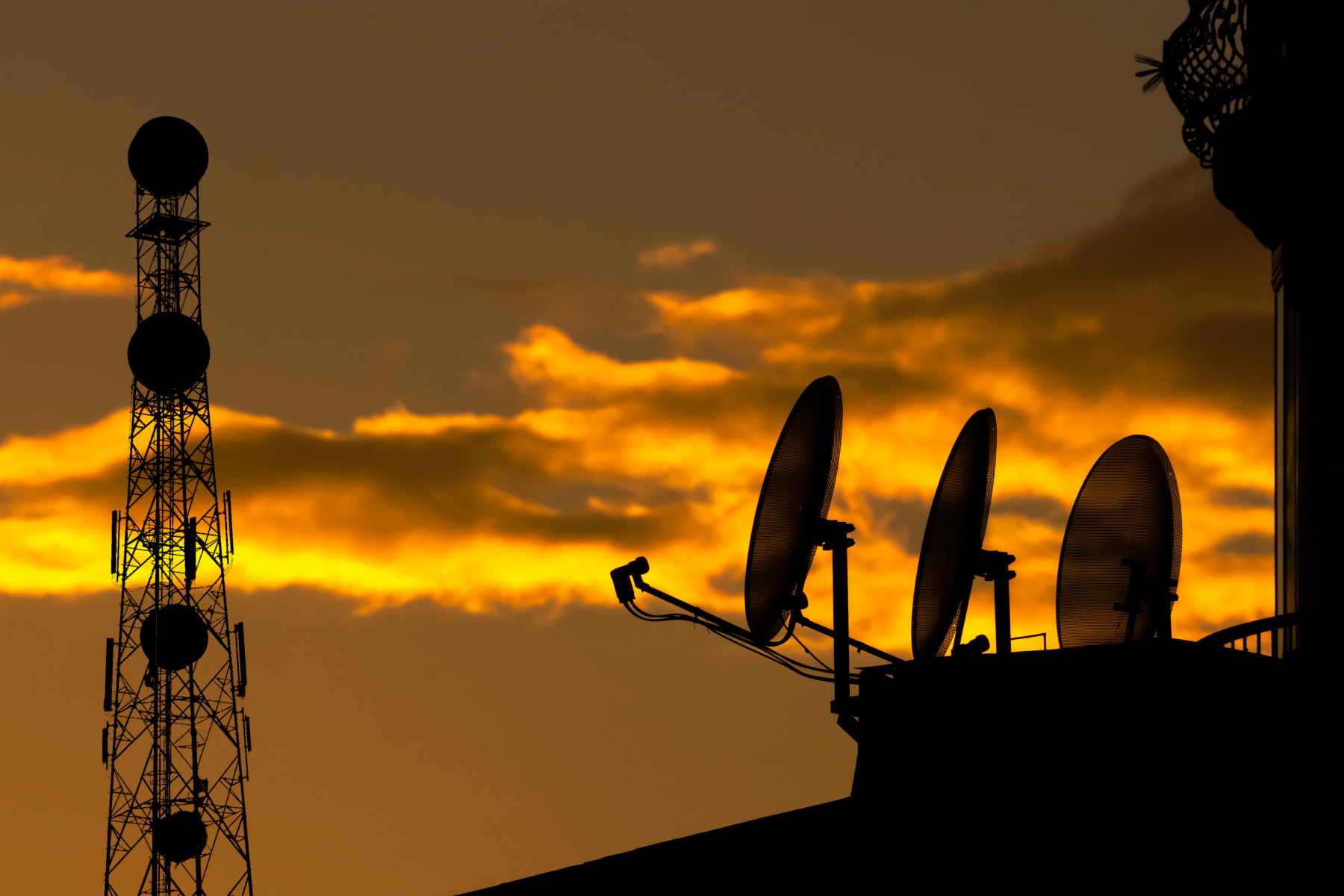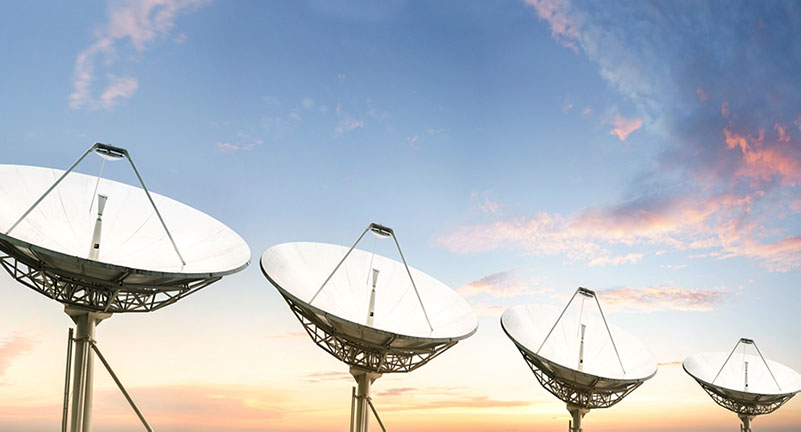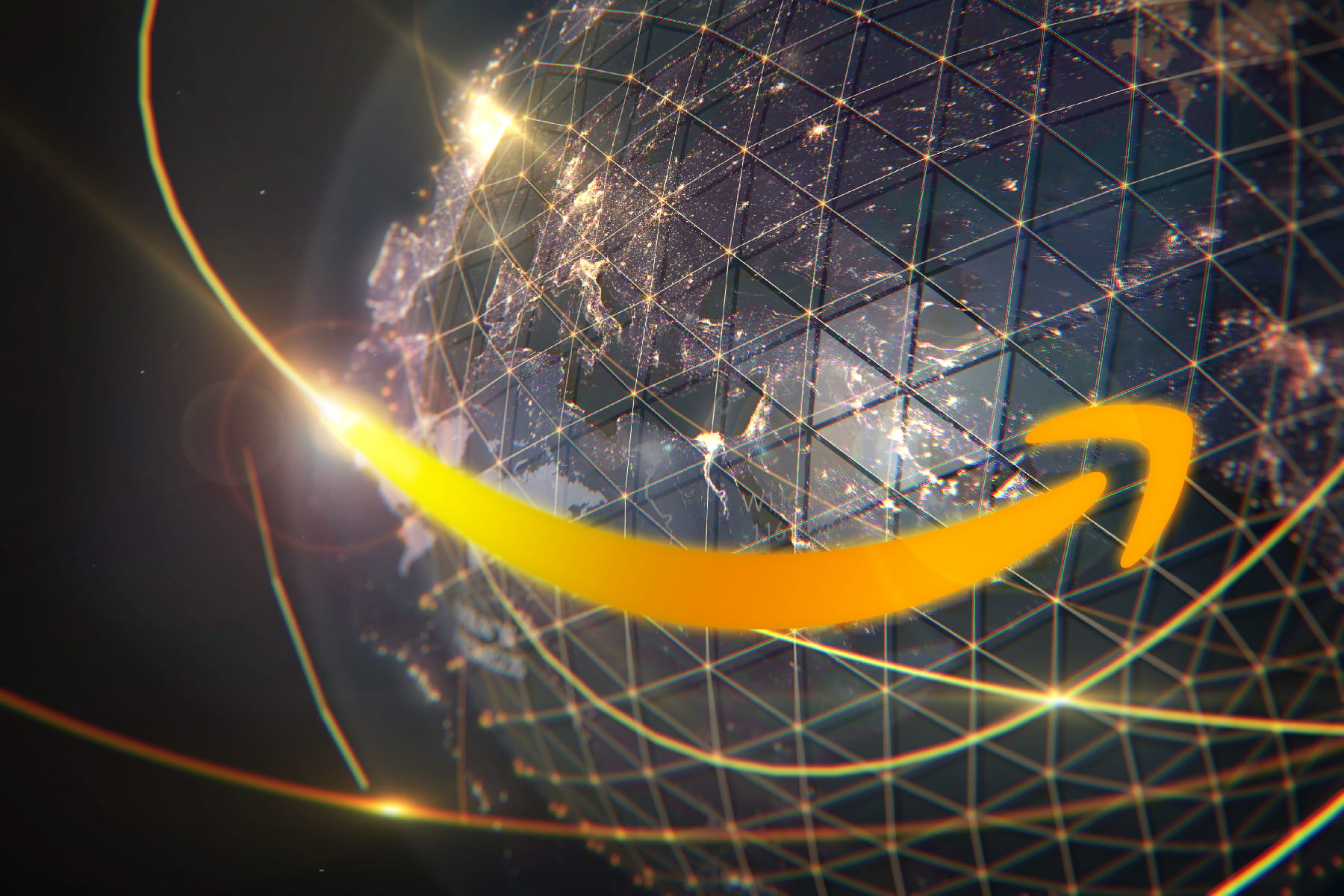2022 Internet Customer Satisfaction Survey
How providers compare, according to more than 8,000 internet customers.
Sep 27, 2022 | Share
Brand Guides


Every year, we survey thousands of internet customers to find which providers are performing best. We focus on overall satisfaction and four key areas that have the biggest impact on customers: speed, price, reliability, and customer service.
For the third straight year, EarthLink is the highest-rated internet provider among national brands. But the competition is strong this year with many standout providers.
Xfinity and Spectrum scored the highest speed ratings, which is a big bounce-back win for cable internet following last year’s survey. Verizon dominated the reliability category, as Verizon customers reported fewer slowdowns and outages than any other national ISP.
Perhaps the biggest winner this year is Google Fiber, which received sterling ratings across every category, coming out on top among regional providers.
How we separated national and regional providers
For 2022, we expanded our report to include survey results for 21 of the nation’s top internet service providers (ISPs). To give the most accurate comparison of these providers, we split them into two categories: national providers and regional providers.
National providers include the largest ISPs in the US in terms of coverage area and internet subscribers. The regional provider category still includes some big names, like Google Fiber and T-Mobile, but regional providers either haven’t had enough residential internet availability or enough home internet customers for long enough to compare to huge ISPs like Xfinity or AT&T.
Key findings and trends
- Speed satisfaction is improving. Out of the 12 providers we surveyed in both 2021 and 2022, eight have improved speed scores, and only one decreased. Overall speed satisfaction also improved.
- Fiber is still on top. Fiber internet gets top ratings in all categories—especially reliability and price.
- Cable internet is keeping up. Cable internet speed ratings have improved from 2021. Two cable ISPs even took the top national spots for speed over several fiber providers.
- Internet and mobile bundling is a hit, while internet and TV is not. Customers who bundle their internet and mobile plans gave much higher price satisfaction ratings than those who don’t. Quite the opposite, customers who bundle with TV reported lower price satisfaction. Many providers reduced or eliminated discounts on internet and TV bundles in 2022, and our data shows fewer customers are bundling internet with TV.
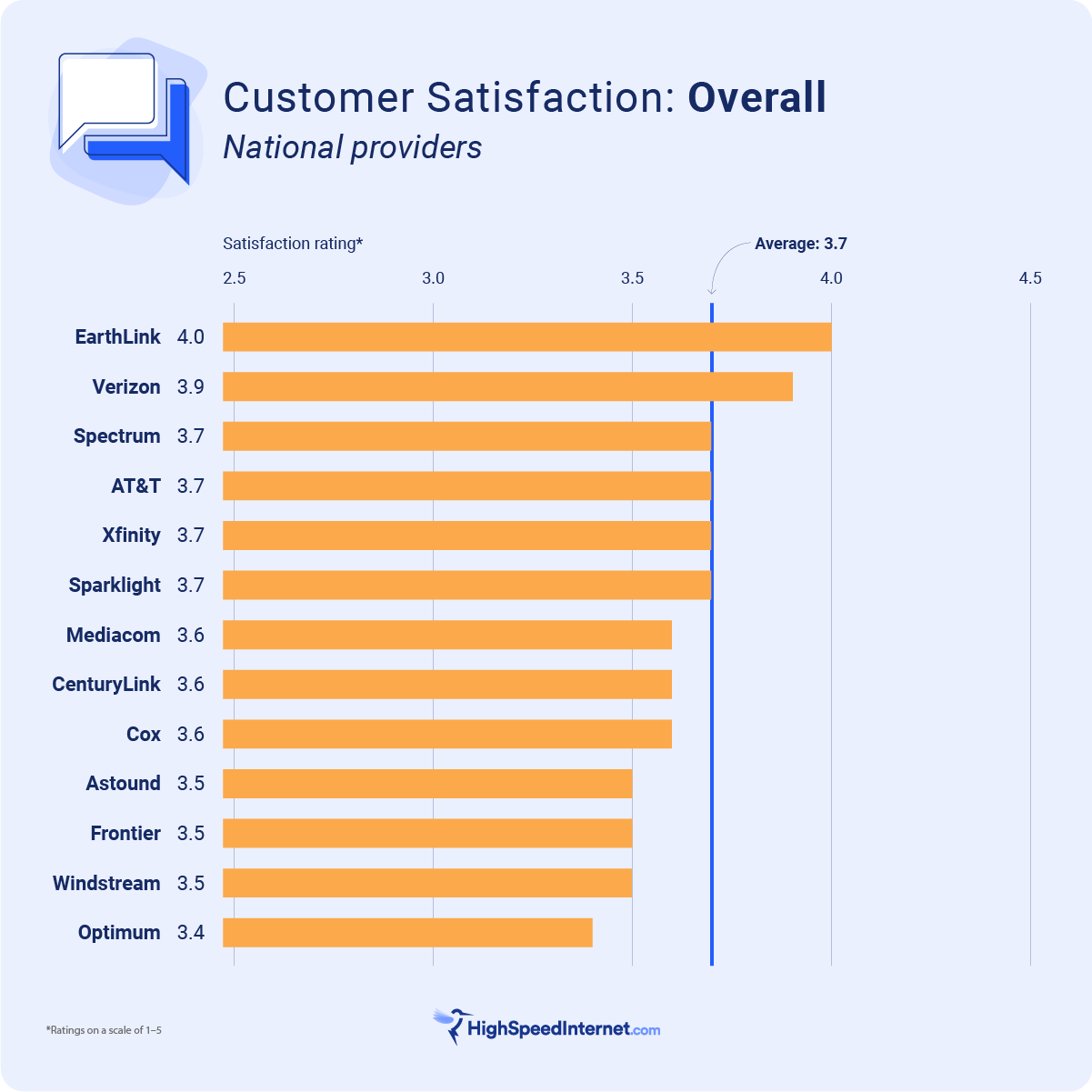
EarthLink stays on top, followed by Verizon and Spectrum
EarthLink has the happiest customers for the third year in a row. A total of 72% of EarthLink customers said they’re “completely satisfied” or “very satisfied” with their service. Besides overall satisfaction, EarthLink ranks first in price and customer service.
EarthLink operates a little differently than other national ISPs; it leases internet service through other providers, like AT&T. This allows EarthLink to focus more on its customer interactions, which is likely a big part of its stellar ratings.
The remarkable thing is how highly customers rated their satisfaction with EarthLink’s prices. With an overall price satisfaction rating of 3.8, EarthLink’s score is much higher than any other national ISP’s—the next closest is CenturyLink at 3.5.
Verizon clearly has happy customers as well, coming in first place for reliability and second for overall satisfaction. In fact, Verizon’s scores are strong across the board; 70% of Verizon customers reported they are “completely satisfied” or “very satisfied” with the service.
The nation’s largest cable ISPs, Spectrum and Xfinity, are trending up this year, scoring in third and fifth place, respectively—a big improvement from 2021. These ISPs have massive coverage areas, so this is good news for a lot of people.
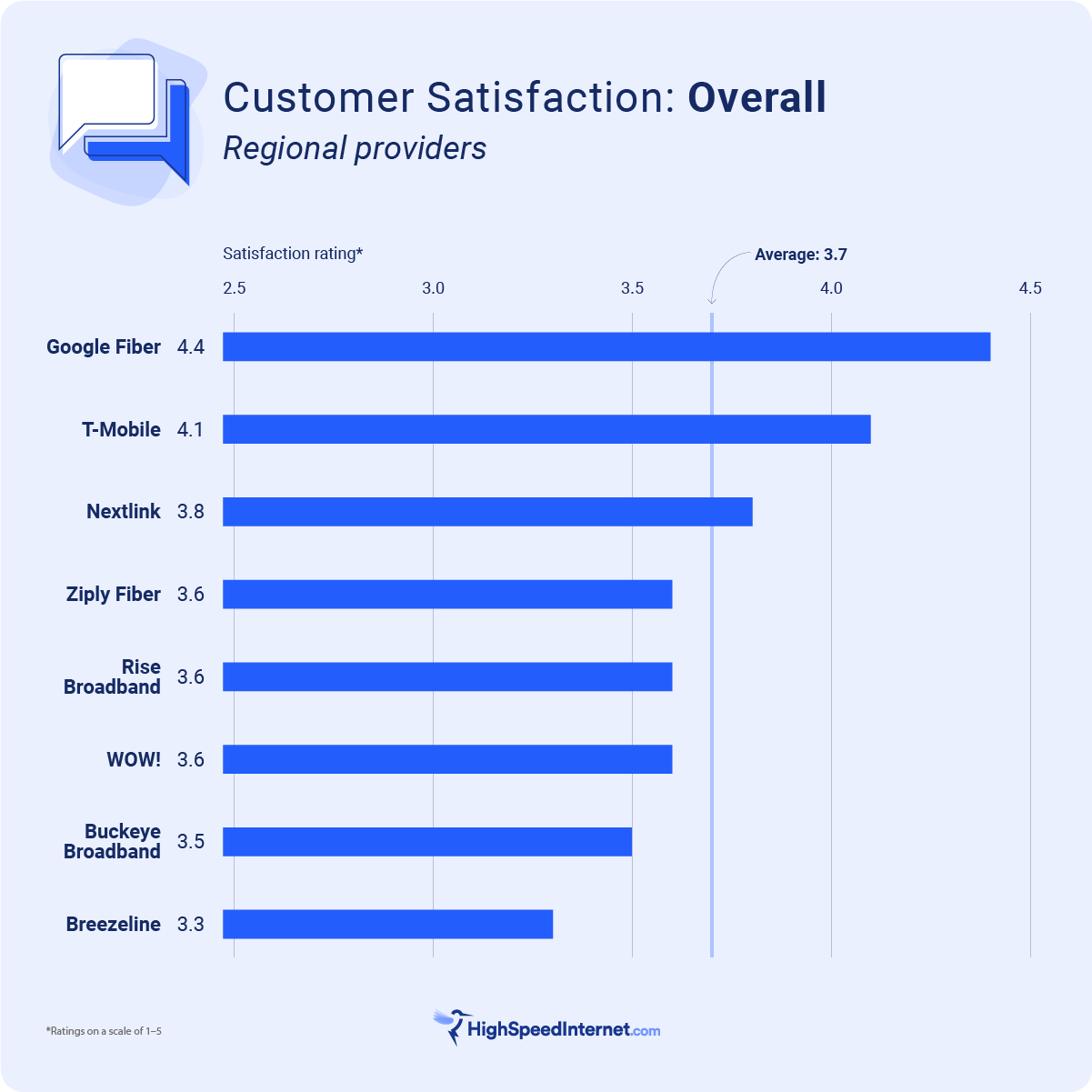
Customers love Google Fiber, T-Mobile’s 5G Home Internet also impresses
Google Fiber has higher satisfaction scores than every other ISP in every category. With an extremely high 4.4 overall satisfaction rating, Google Fiber is the highest rated internet provider in America, period.
Google Fiber offers only fast gigabit speeds over fiber-optic networks—a solid foundation for great internet service, and it shows in the ratings. A huge majority (90%) of Google Fiber customers said they are “completely satisfied” or “very satisfied” with their service.
T-Mobile’s 5G Home Internet ranks second, also with great ratings all around—even beating several fiber ISPs in all categories. T-Mobile’s service uses fast, 5G signals to offer wireless home internet to customers, a key distinction from some other fixed wireless ISPs that use much slower 4G signals. T-Mobile’s ratings are a good sign for this relatively new type of home internet service.
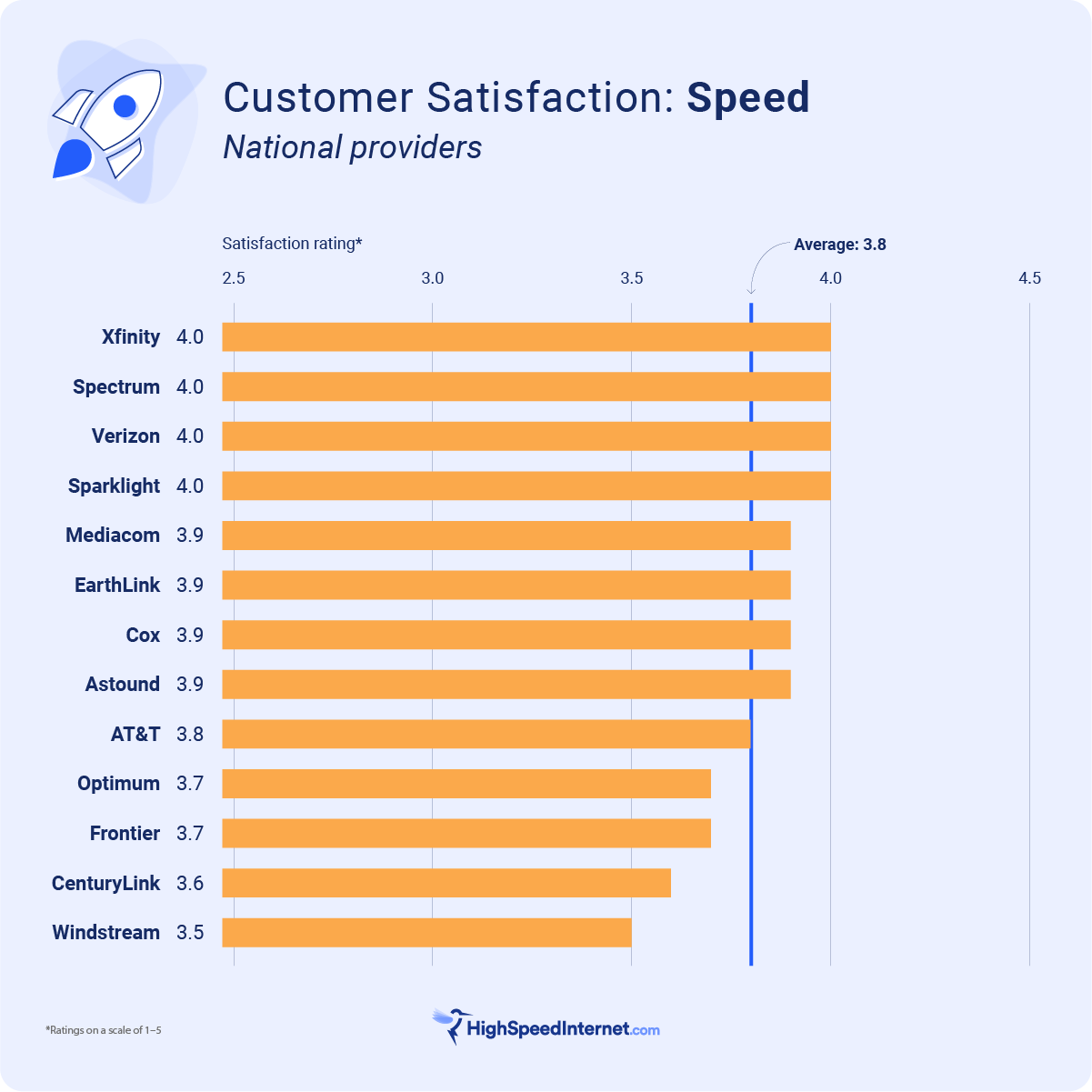
How satisfied are you with your internet speed?
Xfinity is the speed champion of 2022, coming in on top with a 4.0 speed rating. All ratings have been rounded to the closest decimal, but Xfinity’s rating nudged out other top providers. Xfinity has done a great job of demonstrating the capabilities of cable internet by offering gigabit speeds over a huge coverage area as the nation’s largest ISP. Simply put, Xfinity provides the fastest internet speeds to the most people.
Spectrum ranks second in speed, which reinforces the trend of the cable internet speed comeback in 2022. Cable internet providers saw wide declines in ratings in our 2021 survey. It’s likely the pandemic played a part by causing surges in internet traffic, particularly with upload speed, which is one of cable internet’s shortcomings. But with the new initiatives and tech introduced by cable ISPs, like 10G internet and DOCSIS 4.0 (both of which aim to dramatically improve upload speeds), it’s clear that cable internet providers are determined to remain the nation’s primary internet service despite fiber’s bandwidth advantages.
Some internet providers benefit from a closer look. Looking only at CenturyLink’s fiber customers, its speed ratings shoot through the roof. CenturyLink’s fiber customers’ average speed rating is an excellent 4.2, and 96% said their speeds “always” or “usually” meet their needs. These are some of the best numbers in the survey, which suggests that CenturyLink’s fiber and DSL services are two very different experiences.
Which ISPs are the fastest according to tested speeds?
Does the highest rated ISP for speed have the fastest internet service? Not necessarily. Satisfaction ratings are a reflection of internet customers’ perceptions and sentiments but not of actual recorded performance. For a quantifiable view of the ISPs that perform best in actual speed testing, see our report on the fastest internet providers.
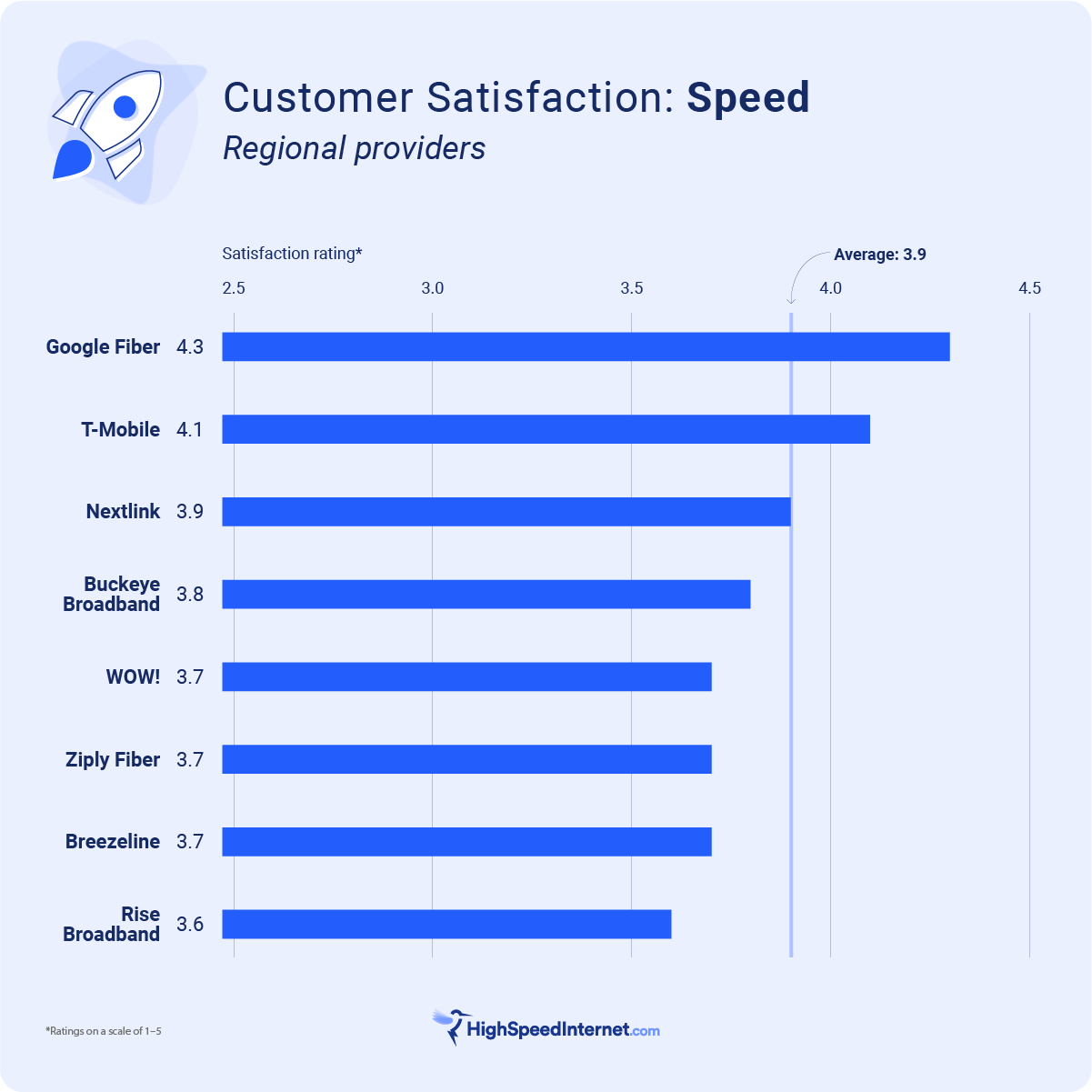
Customers rated Google Fiber’s speeds the highest with an impressive 4.3 average rating. Google Fiber only offers super fast gigabit plans, which is well represented by the 97% of Google Fiber customers who reported their internet speeds “always” or “usually” meet their needs.
T-Mobile’s fixed wireless service also received great overall speed ratings (4.1 average), putting it in the second spot. Customer feedback suggests T-Mobile’s speeds are consistent, as 90% of customers reported “always” or “usually” get the speeds they pay for—more than any other provider.
How satisfied are you with the price you pay for internet service?
Price is usually the lowest scoring category in the survey, and this year is no different. Customers gave an average rating of 3.3 when asked how satisfied they are with their plan pricing, the same as last year.
EarthLink is on top again with an overall price rating of 3.8—much higher than any other national ISP. This doesn’t mean EarthLink’s prices are the lowest (they’re not), but it does suggest that customers feel they get more value for their money with EarthLink.
CenturyLink is second, likely due to its straightforward pricing and lack of price hikes—82% of CenturyLink customers reported no price hikes, significantly better than any other national provider.
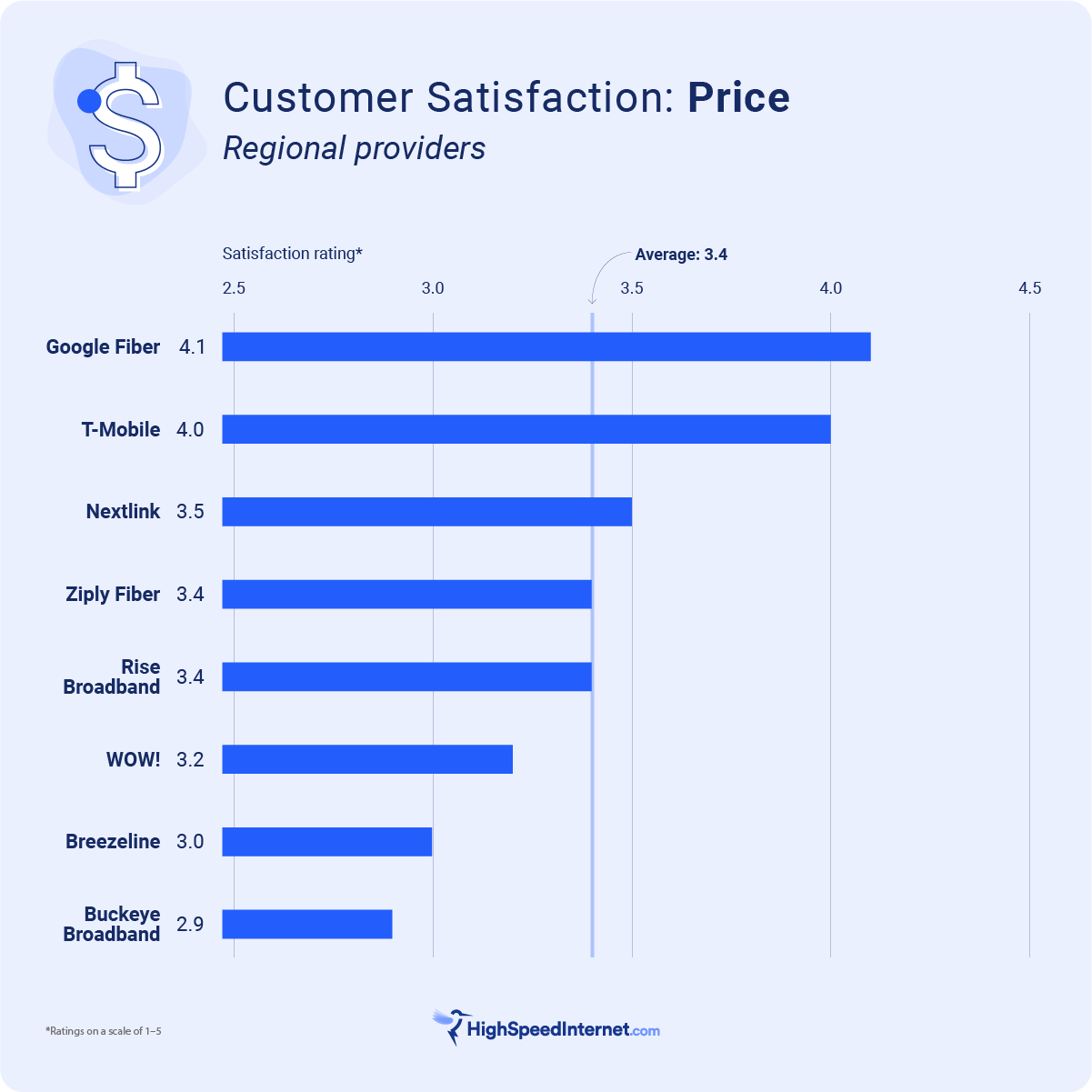
Regional providers do a little better with price satisfaction with a 3.4 average rating, but it’s still the lowest-rated category. Customers certainly appreciate straightforward pricing. Customers almost always gave higher satisfaction ratings to ISPs with fewer reported price hikes. So it makes a lot of sense that Google Fiber dominates price satisfaction, as 82% of its surveyed customers reported no price hikes—tied with CenturyLink for the fewest reported price hikes in the survey.
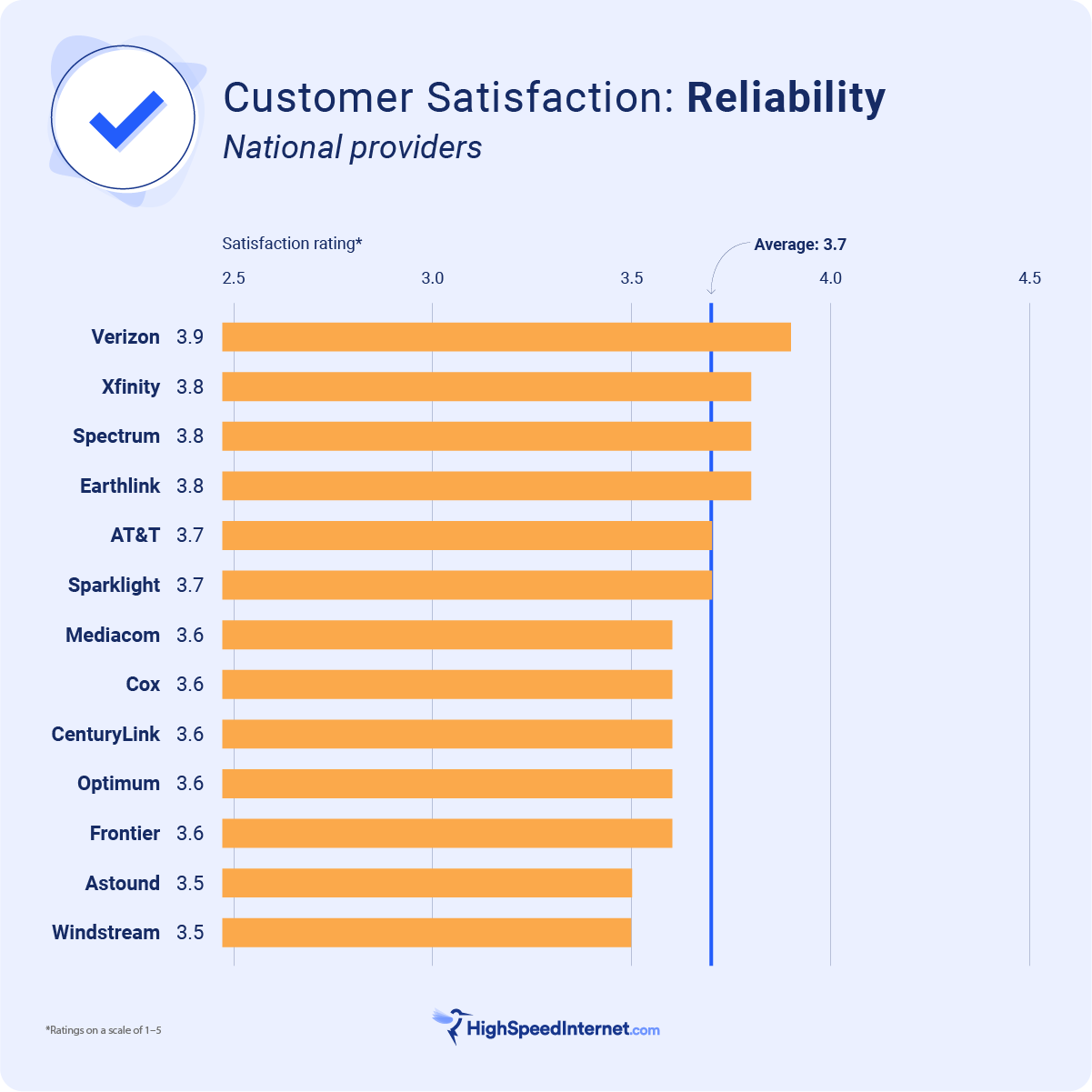
How satisfied are you with the reliability of your internet service?
Verizon received the strongest reliability feedback from customers. In addition to earning the highest reliability rating, Verizon outperforms all other national ISPs at keeping service disruptions at bay. Most (70%) Verizon customers reported they “never” or “rarely” experience outages. Verizon is also tied with Sparklight in having the fewest reported slowdowns among national ISPs.
Verizon’s product line is diverse; we surveyed Verizon’s fiber, DSL, and 5G home internet customers. Its large fiber footprint probably contributes to this ISP’s excellent reliability ratings, but Verizon’s other internet products stand out too. Among DSL customer ratings, Verizon DSL customers reported the highest overall satisfaction rating (3.9) and tied with EarthLink DSL customers for the highest DSL reliability rating at 3.8.
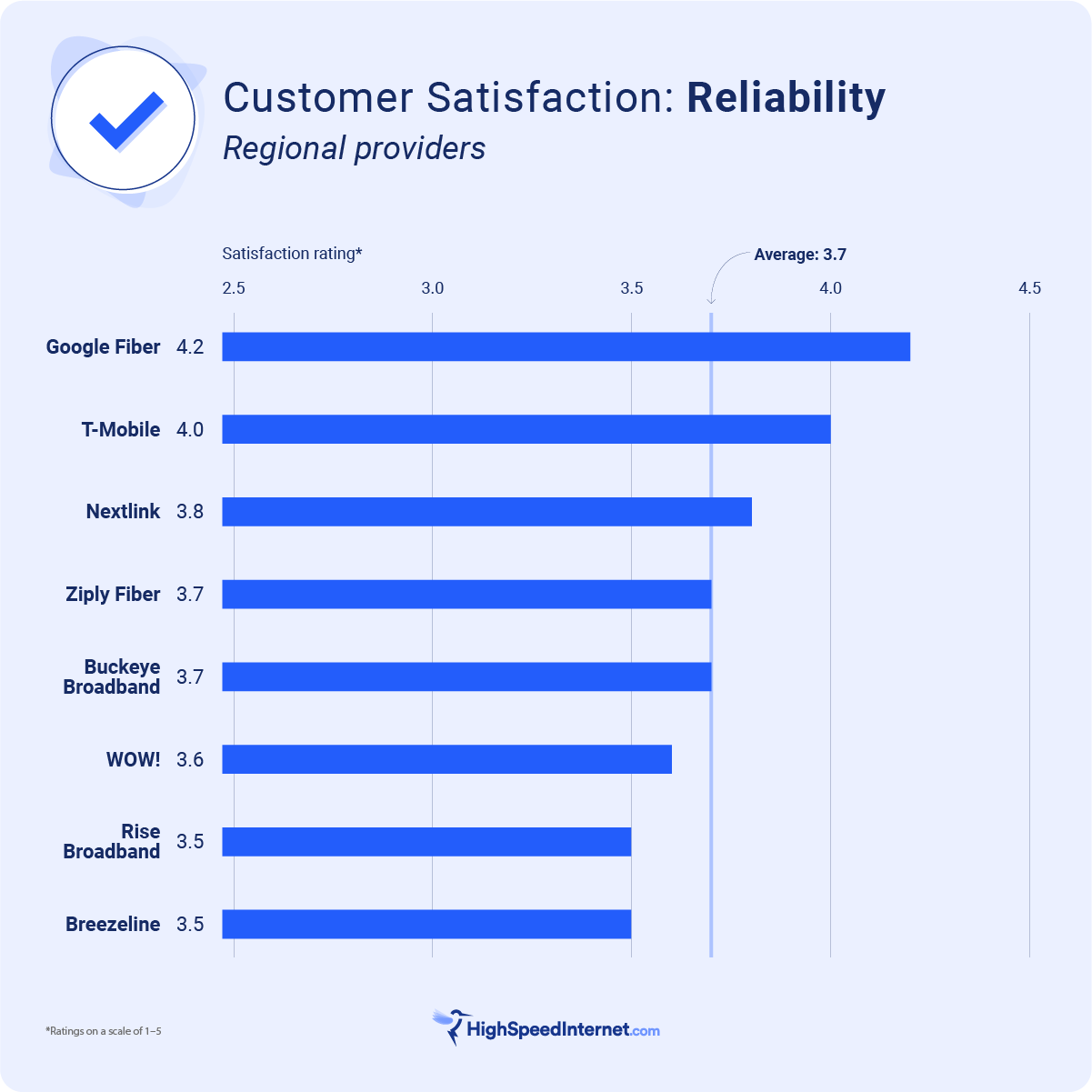
Google Fiber’s reliability rating corresponds with the 80% of Google Fiber customers who reported “never” or “rarely” experiencing outages. Google Fiber customers also reported fewer slowdown occurrences than any other provider, with 66% saying they “never” or “rarely” experience slowed speeds.
Customers rated T-Mobile’s fixed wireless service second best for overall reliability. But when asked about outages and slowdowns, 14% of T-Mobile customers reported “always” or “often” experiencing outages—one of the highest outage occurrence reports in the survey.
Wired internet services like fiber and cable have an edge over wireless services because the cables protect the signal. However, T-Mobile’s high ratings suggest wireless technology is overcoming its limitations, even if there are a few kinks left to work out.
How satisfied are you with your provider’s customer service?
EarthLink is rated highest for overall customer service—not surprising considering the high priority this provider places on quality customer interactions. EarthLink’s excellent performance in these surveys (not just in customer service but in all categories) shows the value in providing easy and thoughtful customer experiences.
Astound customers reported having the easiest customer service experience. When asked specifically how difficult it is to get help, 84% of Astound customers said it’s easy to get their issues resolved. Ratings from Verizon customers suggest a similar experience, as 83% communicated it is easy to get help.
Customers prefer to get help with an app or chat over using the phone
Many ISPs have online chat and support apps customers can use to get help. And customers who have used these services reported having an easier time getting help and gave higher customer service ratings.
A huge majority of surveyed customers still primarily use phone support instead of chat or an app. If your ISP provides either option to get help with your issues, we recommend giving it a try—our data suggests you might have a better experience.
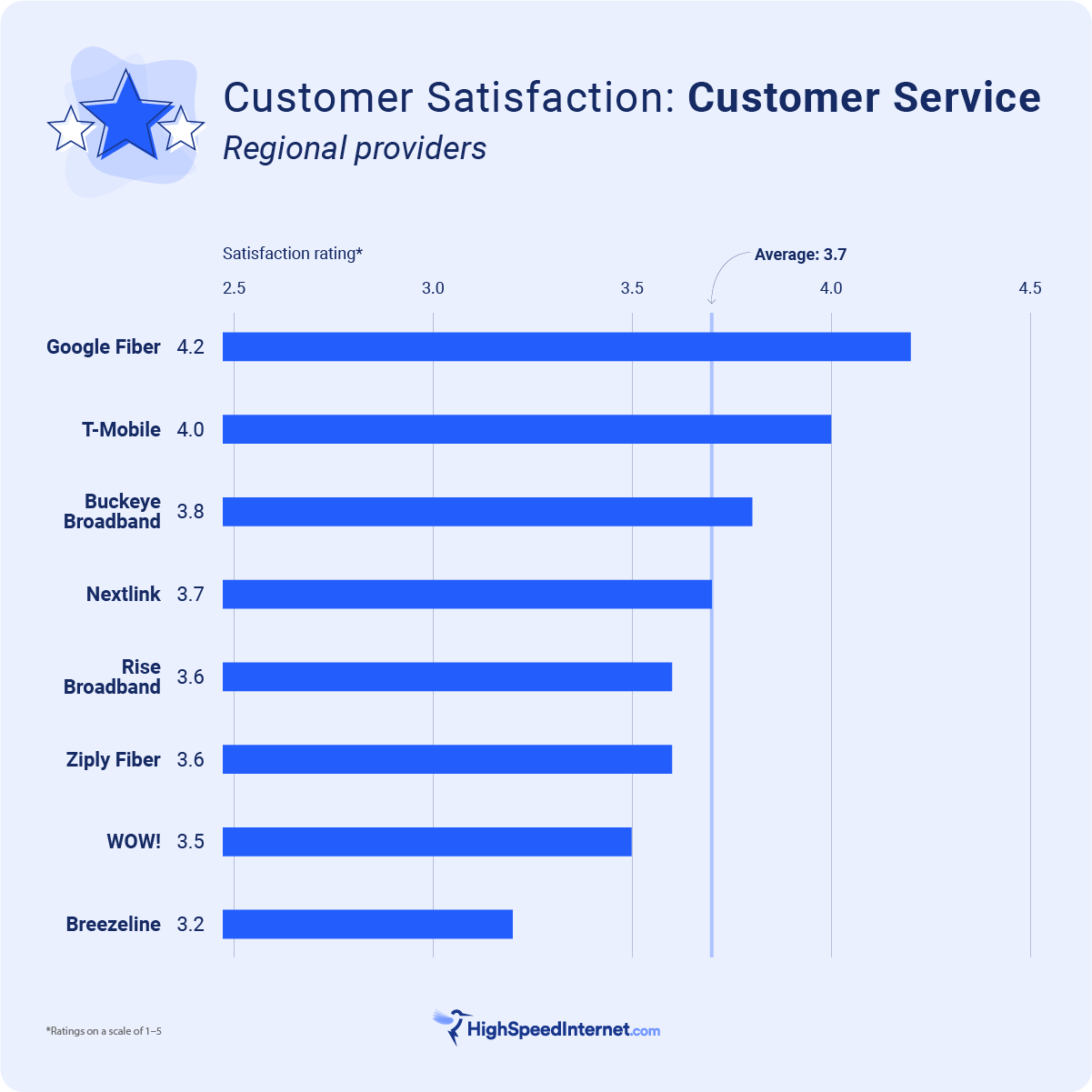
The two regional providers with the highest customer service ratings, Google Fiber and T-Mobile, also have some of the highest reported customer interaction with their apps and chat.
Buckeye Broadband ranks behind T-Mobile with a solid 3.8 customer service rating, and 90% of Buckeye Broadband customers reported it being easy to get help, which suggests that working with customers is this Ohio ISP’s strong suit.
Big wins for HughesNet
HughesNet received consistently higher ratings than Viasat for every category, with the exception of overall satisfaction and customer service, where the two satellite internet providers tie.
The biggest difference is customer satisfaction with price. Neither ISP scores very high, but HughesNet’s 2.8 price satisfaction rating looks a lot better than Viasat’s at 2.5. It can be difficult to directly compare these ISPs prices due to the plans being so different, but HughesNet’s pricing is more straightforward and tends to provide more data per dollar.
HughesNet customers also reported much more consistent speeds, with 58% saying they “always” or “usually” get their advertised speeds compared to only 39% of Viasat customers reporting the same experience. HughesNet customers also reported fewer outages and slowdowns.
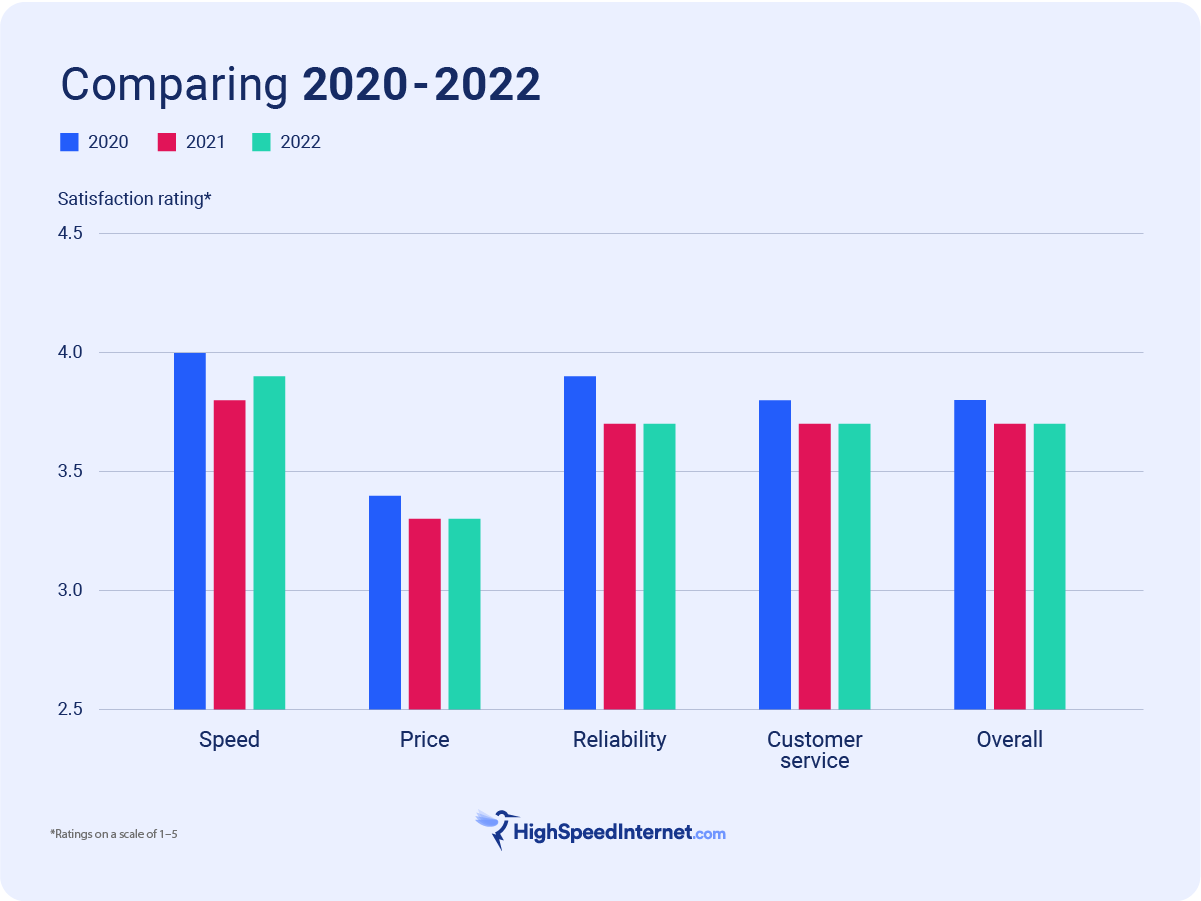
Speeds see some recovery in 2022
In 2021, we saw a wide decline in overall customer satisfaction ratings, likely due to frustrations and increased bandwidth needs brought on by the pandemic, particularly with upload speeds. In 2022, internet traffic growth seems to have stabilized, and we see some improvement with speed satisfaction, but most overall average scores are static.³
This year, 89% of customers reported that their internet speeds meet their needs, that’s up from 85% in 2021. Along with an improved overall average speed score, most individual providers’ speed ratings also improved. This includes most of the nation’s largest ISPs, like Xfinity, Spectrum, Cox, and Verizon, which suggests that satisfaction with internet speeds have improved for most US internet customers. This makes sense considering the speed upgrades rolled out by some of these ISP giants earlier this year.² ³
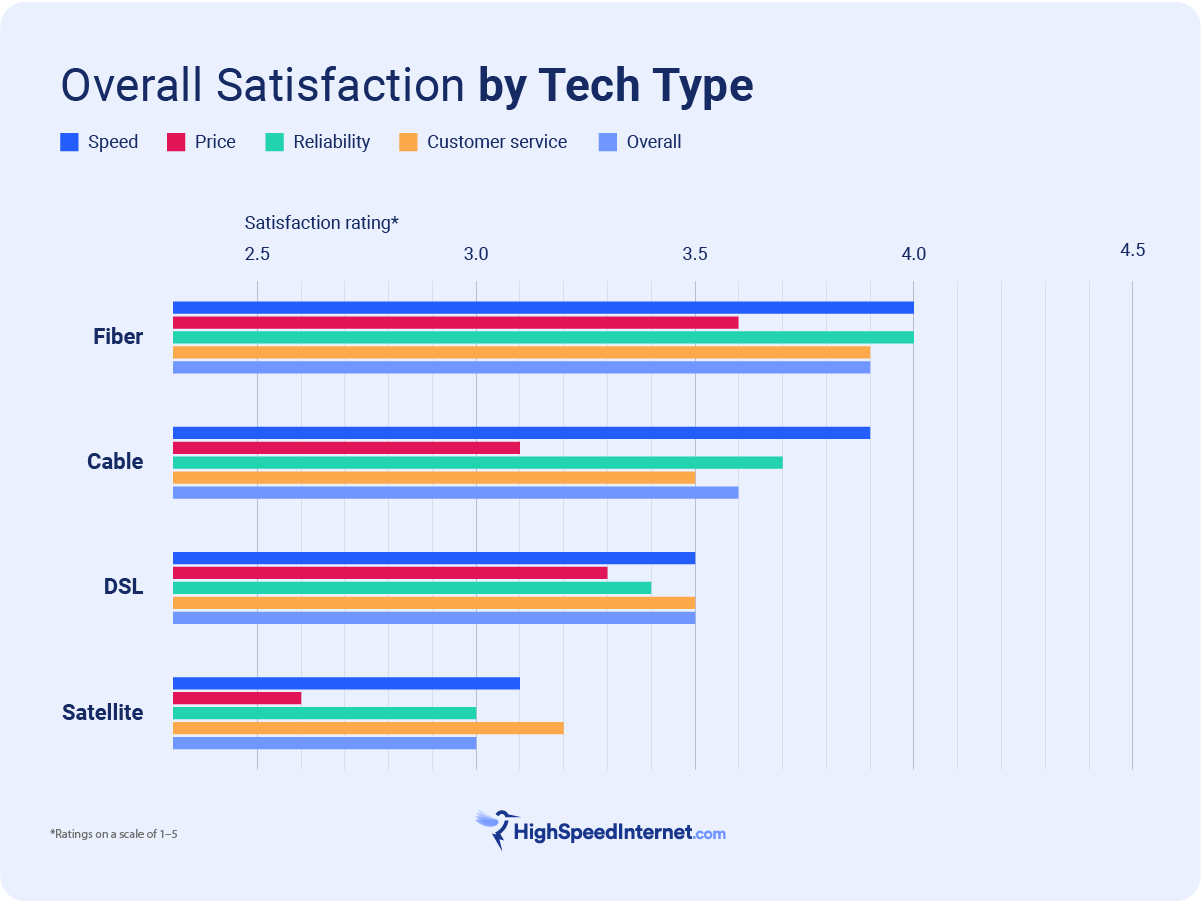
Fiber is still on top, but cable keeps up
Just like in 2021 and 2020, fiber customers gave the highest ratings in every category—most notably in reliability and price. Fiber internet received an average reliability rating of 4.0. Second is cable internet at 3.7. We also see a huge difference between fiber and cable in price satisfaction (3.6 vs. 3.1), which makes sense considering fiber plans often offer more speed for the money.
Fiber customers also reported the fewest outages, with 72% saying they “never” or “rarely” experience an outage—the next best is cable at 59%, followed by DSL at 52%. Fiber infrastructure is usually newer and more streamlined than the competition, making it less likely to lead to outages and slowdowns.
Surprisingly, cable internet is keeping pace with fiber in speed satisfaction, as 91% of cable internet customers reported their internet speeds “always” or “usually” meet their needs, just behind fiber’s 93%. We see similar proximity with cable and fiber overall speed scores as well.
Mobile bundle customers are happier than TV bundle customers
Over the past decade, providers have offered big discounts for bundling internet with TV service. But that trend seems to be dying, with a new bundle on the rise: internet and mobile phone service.
A significant chunk of customers surveyed (17%) bundle their internet plan with mobile service from the same provider. And mobile bundling is a hit—customers who bundle internet with mobile service are happier than those who don’t, with the largest difference seen in price satisfaction.
Many ISP mobile plans are priced to be aggressively competitive. Take Xfinity for example, which offers an unlimited data mobile plan over the Verizon mobile network for just $45 per month. That’s a way better deal than much of the competition. On top of that, Xfinity offers a discount up to a $30 off your internet bill when you bundle with mobile.
On the other hand, the $20 multi-product discount Xfinity offers when bundling internet with TV isn’t nearly as enticing. And some ISPs, like Spectrum, don’t offer any TV bundling discounts at all anymore. Perhaps in response, TV and internet bundles are slowing down. This year, only 42% of respondents said they bundle their internet with TV, way down from 2021 (58%). Even worse, TV bundlers actually gave lower satisfaction ratings for price (3.2) than those who don’t bundle with TV (3.4).
Internet customer satisfaction in the US
While some internet services have higher customer satisfaction than others, most customers in the US are likely to find an internet service that works for them. Of all the internet customers we surveyed, 60% are either “very satisfied” or “completely satisfied” with their internet service, and 89% are at least “somewhat satisfied.” Additionally, 89% of customers said their internet speeds meet their needs. Our data suggest that the majority of broadband connections in the US get the job done.
Methodology
We collected over 8,000 online customer survey responses between June 25 and July 22, 2022. Internet providers with fewer than 40 customer responses were excluded from report rankings; most ISPs in the report received hundreds of responses.
We asked customers to rate key areas of their internet service (speed, reliability, price, and customer service) as well as their overall satisfaction with their provider. We also asked more specific contextual questions in each area. Overall provider scores and scores for each key area were taken directly from customers’ average responses to the corresponding questions and are not the result of averaging answers from multiple questions—we do not assume all customers weigh each area equally.
Each ranked ISP was categorized as a national provider or a regional provider after careful review by our editorial team. For this, we considered each ISP’s number of home internet customers and coverage area in the last year.
This survey collected sentiment responses from customers and does not represent actual technical performance. Analysis not focused on a specific ISP or the national or regional provider groups uses all applicable survey responses, including those of ISPs that were excluded from the report rankings.
Sources
- Charter Communications, “Charter Raises Starting Speeds to 200 Mbps in 37 Additional Markets,” March 8, 2022. Accessed September 15, 2022.
- Comcast Corporation, “Comcast Increases Internet Speeds for Most Customers from Maine through Virginia,” March 7, 2022. Accessed September 15, 2022.
- DE-CIX. “Data Traffic at DE-CIX Internet Exchanges Jumps to over 38 Exabytes,” January 21, 2022. Accessed September 15, 2022.
Author - Austin Aguirre
Austin worked as a broadband technician installing and troubleshooting countless home internet networks for some of the largest ISPs in the U.S. He became a freelance writer in 2020 specializing in software guides. After graduating with a BS in technical communication from Arizona State University, he joined the team at HighSpeedInternet.com where he focuses on home network improvement and troubleshooting.
Editor - Rebecca Lee Armstrong
Rebecca Lee Armstrong has more than six years of experience writing about tech and the internet, with a specialty in hands-on testing. She started writing tech product and service reviews while finishing her BFA in creative writing at the University of Evansville and has found her niche writing about home networking, routers, and internet access at HighSpeedInternet.com. Her work has also been featured on Top Ten Reviews, MacSources, Windows Central, Android Central, Best Company, TechnoFAQ, and iMore.


